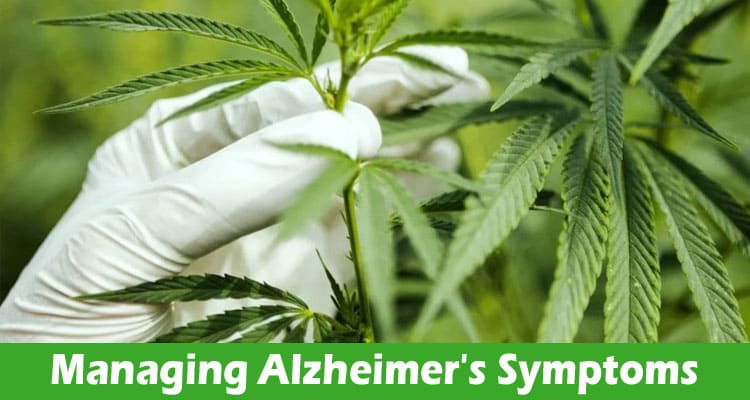Dealing with Alzheimer’s disease feels like trying to piece together a thousand-piece puzzle with no reference image. It’s a disease that steals memories, challenges identities, and leaves families searching for answers. And while we haven’t found the missing piece yet, the puzzle is slowly becoming less intimidating. One surprising potential piece? Cannabis. This plant, often marred by stigma, could be a beacon of hope in the bleak landscape of Alzheimer’s care.
Decoding Alzheimer’s Disease
Alzheimer’s disease isn’t simply a case of ‘misplaced keys.’ It’s a progressive brain disorder that chips away at the memory, thinking skills, and the ability to carry out simple tasks. According to Mayo Clinic, our current treatment methods don’t stop Alzheimer’s from progressing. They temporarily slow down the worsening of dementia symptoms and improve quality of life, but there’s room for improvement. For many patients and caregivers, it’s an ongoing struggle – a daily fight against the slowly encroaching fog of forgetfulness.
The Cannabis Connection
If we take a step back in time, we’ll find records of cannabis being used as a medicine dating back thousands of years. Today, the plant is making a comeback in modern medicine, and the secret seems to lie in our body’s endocannabinoid system. This fascinating system, integral to many physiological functions, interacts with cannabis’ active compounds, potentially offering a wide range of therapeutic benefits. In the realm of pain management, epilepsy control, and even in mitigating the side effects of chemotherapy, cannabis has shown promising results.
The Intersection of Cannabis and Alzheimer’s Disease
Now, how does cannabis fit into the Alzheimer’s puzzle? Early research indicates that cannabinoids, such as THC and CBD, could play a significant role in managing Alzheimer’s symptoms. This magic duo could potentially reduce inflammation and oxidative stress, both implicated in Alzheimer’s progression.
These aren’t just empty hypotheses. We’re starting to see real-life examples, with numerous Alzheimer’s patients and caregivers recounting improved mood, better sleep, and reduced agitation from cannabis use. Imagine an Alzheimer’s patient finally getting a restful night of sleep or experiencing fewer moments of anxiety and confusion. These are the small victories that can drastically improve the quality of life.
The Fine Print: Legalities of Medical Cannabis
As intriguing as the potential of cannabis is, it’s essential to navigate the legal landscape. In the U.S., the legality of cannabis varies wildly from state to state. Let’s take Kentucky as an example. Here, marijuana is legal solely for medical use, provided a registered healthcare provider prescribes it. But navigating these legal waters can be tricky, especially for patients and caregivers already burdened with managing a chronic condition like Alzheimer’s. Patients should contact medical marijuana doctors in KY so that they can get informed and access cannabis quickly.
Unraveling the Controversies
As we paint this optimistic picture of cannabis, we can’t sweep the controversies under the rug. Yes, cannabis does have potential downsides, including altered perceptions, impaired memory, and the risk of dependency on long-term use. It’s a delicate balance – weighing the potential benefits against these risks. And let’s not forget the social stigma associated with cannabis use, often stemming from misconceptions and a lack of understanding. Addressing these issues is paramount in building a comprehensive, nuanced perspective on cannabis and Alzheimer’s.
The Road Ahead: Untapped Potential
While we’re at an exciting crossroads of cannabis and Alzheimer’s research, there’s still much we don’t know. However, the research journey continues, with scientists worldwide hoping to gain deeper insights into how cannabinoids interact with the brain. It’s an area of untapped potential – a new frontier that could transform our understanding of Alzheimer’s treatment.
As we navigate this brave new world, staying informed and updated is critical. These new discoveries might just offer a glimmer of hope for those affected by Alzheimer’s.
Parting Thoughts
There’s no denying the gravity of Alzheimer’s disease and the urgent need for more effective treatment options. Cannabis might not be the silver bullet we’ve been searching for, but its potential is undeniable. In the intricate web of Alzheimer’s disease management, the promise of cannabis shines brightly. It serves as a reminder that even in the face of a disease as complex and devastating as Alzheimer’s, there are always new avenues to explore, new treatments to consider, and new hope to hold onto.


